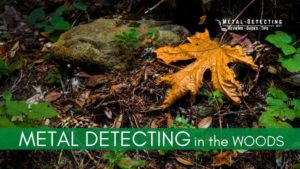If you’re looking to find old coins using metal detecting maps and online resources, you’ve come to the right place.
In this blog post, we’ll explore the best ways to uncover hidden treasures and make the most of the digital world to aid your quest.
So, buckle up and let’s dive in!
The Power of Online Research
Before you head out to the field, it’s essential to do your basic metal detecting research. The internet is an invaluable resource for coin hunters, as it offers countless tools and information to help you locate potential hotspots.
Start by searching for historical maps and documents online. Look for old property boundaries, long-lost roads, and former homesites that might have been frequented by people who lost coins.
Websites like HistoricAerials.com, USGS Historical Topographic Map Explorer, and oldmapsonline.org are great places to find such maps.
Next, check out local history books, newspaper archives, and genealogical records to gather information about the area.
This research will help you understand where people might have gathered, such as churches, schools, markets, and parks – all potential coin hotspots.
Using Metal Detecting Maps
Once you’ve done your online research, it’s time to create or find a metal detecting map to guide your hunt.
These maps can be as simple or detailed as you like, depending on your preferences and the tools you have at your disposal.
Customize your map: If you’re a tech-savvy treasure hunter, you can use Geographic Information System (GIS) software or mapping applications like Google Earth to create a custom map.
Mark potential hotspots, old roads, and property boundaries directly on the map to guide your search.
Use pre-made metal detecting maps: Some websites and forums offer pre-made metal detecting maps that you can download and print.
These maps are usually created by other metal detectorists and can be a great starting point for your hunt.
Make a physical map: If you prefer a hands-on approach, print out a historical map and use a pencil or pen to mark potential hotspots.
This method allows you to adjust your map as you discover new information or revisit the site.
Practical Tips for Successful Coin Hunting
Now that you’re armed with the knowledge and tools, here are some practical tips to help you unearth those old coins:
Get permission to metal detect on private land: Before venturing onto private property, always obtain permission from the landowner.
This not only ensures you’re respecting their rights, but it can also lead to valuable information about the site.
Choose the right equipment: Invest in a quality metal detector designed for coin hunting, and consider purchasing additional accessories like a pin pointer and a digging tool.
Check out our buying guide for tips on selecting the right detector.
Be patient: Coin hunting can be a slow process, so take your time and methodically search your chosen area.
Remember, it’s not just about finding treasures; it’s about enjoying the journey and learning about history along the way.
Clean and preserve your finds: Once you’ve found some old coins, learn how to clean and preserve them properly to ensure they maintain their value and historical significance.
It’s important to be gentle when cleaning old coins, as improper cleaning techniques can damage them or reduce their worth.
Join a community: Connect with other metal detectorists through online forums, social media groups, and local clubs.
These communities can provide valuable tips, advice, and support as you embark on your coin-hunting journey. Plus, it’s always more fun to share your finds and stories with like-minded enthusiasts!
Keep records: Document your finds by taking photos, recording the location, and noting any historical context.
This will not only help you track your progress, but it can also be useful when sharing your discoveries with others or obtaining permission to metal detect on private land.
Stay safe: Always wear appropriate clothing and protective gear, such as gloves and sturdy shoes, when metal detecting.
Additionally, be mindful of your surroundings and follow any local laws or regulations related to metal detecting.
Final Thoughts
By utilizing metal detecting maps, online resources, and practical tips, you’ll be well on your way to finding old coins and uncovering hidden treasures.
Remember, patience and persistence are key in this hobby. So, grab your metal detector, hit the field, and let the adventure begin!

